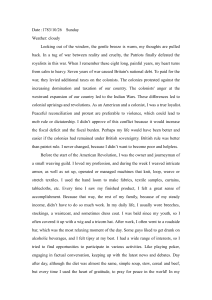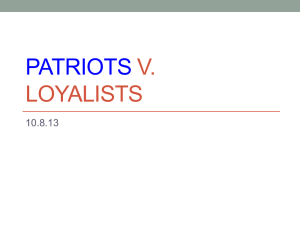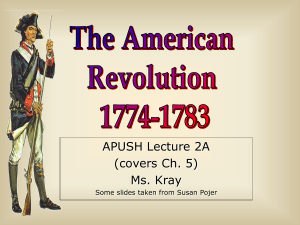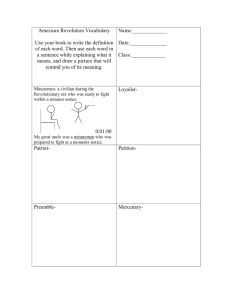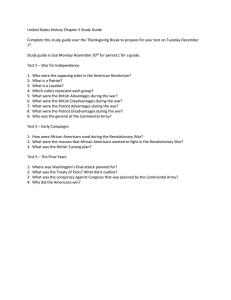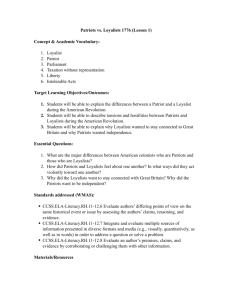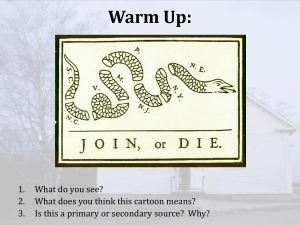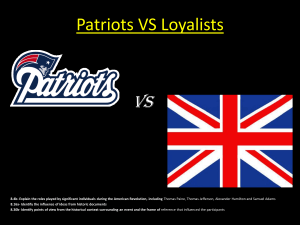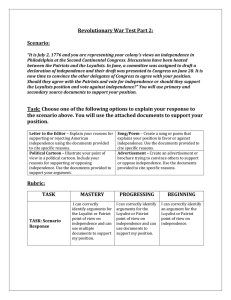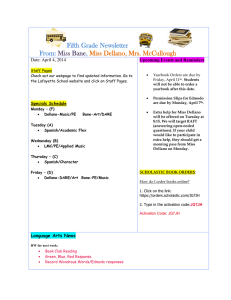Lesson 5: Patriots vs. Loyalists
advertisement
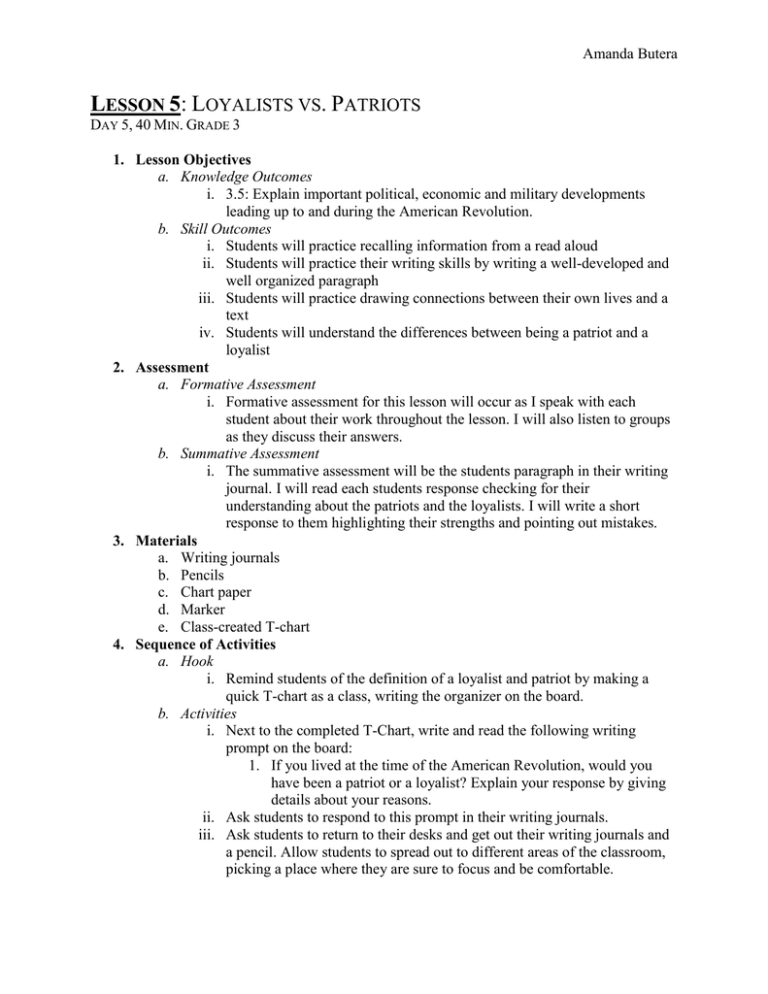
Amanda Butera LESSON 5: LOYALISTS VS. PATRIOTS DAY 5, 40 MIN. GRADE 3 1. Lesson Objectives a. Knowledge Outcomes i. 3.5: Explain important political, economic and military developments leading up to and during the American Revolution. b. Skill Outcomes i. Students will practice recalling information from a read aloud ii. Students will practice their writing skills by writing a well-developed and well organized paragraph iii. Students will practice drawing connections between their own lives and a text iv. Students will understand the differences between being a patriot and a loyalist 2. Assessment a. Formative Assessment i. Formative assessment for this lesson will occur as I speak with each student about their work throughout the lesson. I will also listen to groups as they discuss their answers. b. Summative Assessment i. The summative assessment will be the students paragraph in their writing journal. I will read each students response checking for their understanding about the patriots and the loyalists. I will write a short response to them highlighting their strengths and pointing out mistakes. 3. Materials a. Writing journals b. Pencils c. Chart paper d. Marker e. Class-created T-chart 4. Sequence of Activities a. Hook i. Remind students of the definition of a loyalist and patriot by making a quick T-chart as a class, writing the organizer on the board. b. Activities i. Next to the completed T-Chart, write and read the following writing prompt on the board: 1. If you lived at the time of the American Revolution, would you have been a patriot or a loyalist? Explain your response by giving details about your reasons. ii. Ask students to respond to this prompt in their writing journals. iii. Ask students to return to their desks and get out their writing journals and a pencil. Allow students to spread out to different areas of the classroom, picking a place where they are sure to focus and be comfortable. Amanda Butera iv. Check in with each student by asking them about their choice and how they are justifying that choice. v. Students will be given the opportunities to discuss their responses with a partner or in their groups at their desks. c. Differentiation i. Students will work individually, giving the teacher ample opportunity to focus on students who are struggling by giving those students individual attention when necessary. Students will be able to draw a picture to go along with their paragraph. This will be encouraged for students who are struggling to write down their ideas in words. Students who finish early will also be asked to illustrate their work. d. Wrap-up i. The class will return to the rug and those who wish to share their answers will be able to ii. I will review the significant differences/facts about patriots and loyalists with the students, as the final part of the lesson. 5. Potential Pitfalls 6. Reflections
